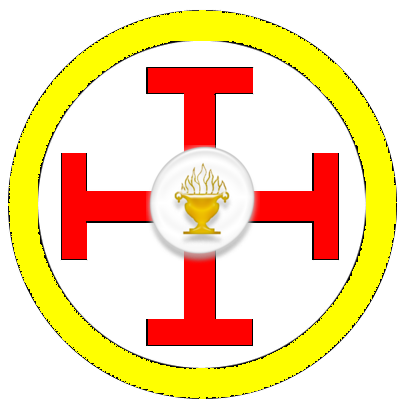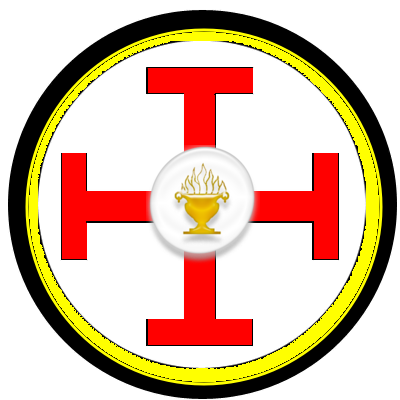 |
"Serving God inspired by the teachings of Zartus"
|
 |
"Serving God inspired by the teachings of Zartus"
|
ZorochristiansZorochristians are people who are interested in the connection between the teachings of the ancient philosopher and teacher Zoroaster and the Christian tradition.They consider that major aspects of Christian teaching are clearly derived from the teachings of Zoroaster, and that the conception that Christianity developed natively out of the Abrahamic tradition is a false one. Instead they regard Zoroaster as the Father of Christianity. However among Zorochristians there are two distinct approaches they may take: Some Zorochristians consider themselves belonging primarily in the Zoroastrian tradition. They may regard Jesus as an major Saint, but he doesn't have the same key importance as he does for most Christians. They don't regard the Christian Bible as a religious authority, but nevertheless they see value in the Christian tradition as a whole and are happy to borrow from it. Other Zorochristians do see themselves as Christians. They consider they are as much Christians as many other early Christians who existed before the Roman Church decided there was only one way to be a Christian. Like many early Christians they don't regard the Old Testament as a Christian book, or that the god Yahweh of the Hebrew Scripture is the same as Jesus' 'Father in Heaven'. However they are passionately connected to the figure of Jesus. They use both the New Testament and other Christian writings of the same era to learn about the nature of Jesus. ZartochrestianismZartochrestianism is a framework for a new variety of the ancient Iranian religion of Zoroastrianism founded by the teacher Zoroaster, hundreds of years before the Christian Era.Zartochrestianism aims to assist people to be good servants of the Good Power and help it make the world a better place. Zartochrestianism is a sister religion to Zartian Mithraism, but feels a bit more like Christianity. Zartochrestianism aims to be largely independent of the Christian tradition and doesn't regard the Christian Bible as a religious authority for Zartochrestians to depend on. Nevertheless we may borrow some ideas from Christianity. They key scriptures of the religion are the Zartigathas or Songs of Zoroaster, which are also sometimes called the Gospel of Zoroaster. ZoroasterZorochristians regards the ancient religious philosopher known as Zoroaster as its original founder. Zoroaster whose name is also written as Zarathustra or Zartus and whose exact birth date is not known to academics is regarded by us to have lived about 1000BC in the lands of the ancient Iranians.Zoroaster set out his thoughts in a number of hymns we call the Zartigathas or Songs of Zoroaster. These form the foundation scripture of Zartochrestianism, and can also be called the Gospel of Zoroaster. Zoroaster was concerned with the question of Good and Evil in human affairs and how Mankind might bring about the Good Society marked by righteous order and human flourishing. The Good News that he brought is that the world works according to logical principles and that if we can master these principles with our minds then we will be able to speak the good words and take the right actions that are needed to overcome evil and bring about the best state of existence. Ancient EnlightenmentZoroaster set an example of enlightenment thinking - of seeking to use reason to tease out the principles behind existence so that we may influence it for the better.This example spread out from Iran - Southwards to inspire the Vedanta philosophy of India, Eastwards to influence the foundation of Buddhism and Westwards to influence the thinking of the Greek philosophers. Zorochristians are particularly interested in the thinking of the Greeks such as Plato and Aristotle whose ideas have been of such influence on European and Christian thought. Jesu-Christian EraZoroastrian ideas were mainstream in the Persian empire that bordered Palestine around the time of Jesus, and there was a strong Zoroastrian influence on the development of Christian doctrine.Thus Zorochristians have an interest in the wisdom encapsulated in the Christian tradition, whether from the Bible, especially the New Testament, or other non-orthodox scriptures of the same era, or later writings by influential Christians, including those associated with the Roman Church. NB Zorochristians consider Zoroaster as the philosophical founder of their tradition but we don't regard him as fully divine in the way that Jesus is regarded by Abramochristians, and we don't worship him in the same way. Zoroaster's role could perhaps be compared to that of John the Baptist in Abramochristianity. ChrestorsChrestors are human 'saviours' of the world (in Persian 'saoshyant'). Chrestors are people who work to help the living world by taking on the nature of Chrestus-Aristus.It is the agenda or purpose of Zorochristians to become good chrestors. We struggle towards the Good. We seek to play our part in the healing of the world from its corruption. We seek to stand against all deviation from the path of truth and righteousness. We work to restore the world it to its pristine freshness. We push for the righteous order that brings the common flourishing. Relationship to other religionsZorochristians recognise a kinship with people in other religious traditions especially Abramochristians and Moslems and seek friendly relations where possible. Zorochristianity is a monotheistic universal religion which believes that God's wisdom is revealed through the living world. Those with a similar attitude in other traditions are most likely to be able to co-operate with us.Why do we use the term Abramochristianity?Perhaps we might have used the word Judeo-Christianity which at first glance has the same meaning. However the term Judeo-Christianity is a modern invention that upsets the traditional understanding of followers of both Christianity and Judaism that their religions are incompatible with each other.Instead we considered the term Jesuchristianity, however Zorochristians also recognise Jesus as an important figure. Zorochristianity distinguishes the phenomenon of Christ from the historic person of Jesus, but nevertheless recognises him as the foremost teacher of Christ in history. Abramochristianity seems to best describe that variety of Christianity that sees its foundation in the Old Testament of the Bible. Updated August 4024 EHE The ChalipaThe Chalipa is a symbol used by Zartochrestians to represent their religion. The symbol is made up of an equilateral cross potent superimposed with a typically seven-flamed firepot in a circle all enclosed by a larger circle. Chalipa means 'cross' in Persian and refers particularly to the sun cross at the centre of the symbol as well as the whole symbol.
|